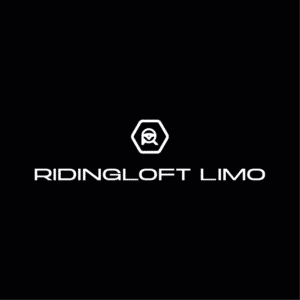Limo tint adds a sleek, private look to vehicles, making it a popular choice for limousines, luxury sedans, and SUVs. If you’re wondering about limo tint cost in 2025 or whether it’s legal in Massachusetts, this guide covers everything you need. From pricing and installation options to state laws and benefits, we’ll help you understand what to expect when tinting your car in cities like Boston or Worcester.
What Is Limo Tint and Why Is It Popular?
Limo tint refers to window film with a 5% Visible Light Transmission (VLT), meaning it blocks 95% of visible light, creating a nearly opaque appearance. It’s widely used on limousines and luxury vehicles for its privacy and polished style. Key reasons for its popularity include:
- Maximum Privacy: Keeps passengers and belongings hidden from view.
- Elegant Look: Enhances the vehicle’s aesthetic, ideal for professional or luxury settings.
- Versatility: Suitable for rear windows of sedans, SUVs, or stretch limos.
Due to its darkness, limo tint is typically applied to rear windows to meet safety and legal standards, as it can reduce visibility, especially at night.
Why Choose Limo Tint for Your Vehicle?
Limo tint offers practical and aesthetic benefits beyond its dark appearance:
- Privacy: Its 5% VLT ensures outsiders can’t see inside, perfect for high-profile passengers.
- UV Protection: Blocks up to 99% of UV rays, protecting skin and preventing interior fading.
- Heat Reduction: Cuts 40–60% of heat, keeping your car cooler in Massachusetts’ summer months.
- Glare Control: Reduces glare from sunlight or headlights, improving driving comfort.
- Security: Conceals valuables, deterring theft, and some films reinforce windows against breakage.
- Fuel Efficiency: Cooler interiors reduce air conditioning use, saving energy.
- Safety: Holds shattered glass together in accidents, minimizing injury risks.
These advantages make limo tint a great choice for both style and functionality, especially for limousine owners serving upscale clients.
Why Is Limo Tint Restricted in Some States?
The 5% VLT of limo tint is so dark that it raises safety concerns in many states. Low visibility, particularly at night, can make driving challenging, and law enforcement may struggle to see inside vehicles, creating security issues. For example:
- California: Allows 5% VLT on rear windows but requires 70% VLT for front side windows.
- New York: Permits 5% VLT on rear windows but mandates 70% VLT for front windows.
- Penalties: Fines for illegal tint range from $25–$250, with additional costs ($100–$300) to remove non-compliant film.
Massachusetts has specific regulations to ensure road safety, detailed below.
Is 5% Limo Tint Legal in Massachusetts?
Massachusetts enforces strict window tint laws to balance privacy and safety. Here’s what you need to know about 5% limo tint:
- Front Side Windows: Must allow at least 35% VLT. Limo tint (5% VLT) is not allowed here to ensure driver visibility.
- Rear Side Windows: Any VLT is permitted, including 5% limo tint, if the vehicle has dual side mirrors.
- Rear Window: Any VLT is allowed, making 5% limo tint legal for back windows.
- Windshield: Only a non-reflective strip on the top 6 inches is permitted.
- Exemptions: Limousines may have relaxed rules for rear windows, but front windows must meet the 35% VLT standard.
- Penalties:
- Fines: $50–$100 per violation.
- Inspection Issues: Illegal tint can cause inspection failure.
- Removal Costs: $100–$300 to remove non-compliant tint.
- Other Rules:
- No mirrored or highly reflective tints.
- Red, amber, or blue tints are banned.
- Medical exemptions allow darker tints with a doctor’s note (submit to the Massachusetts RMV).
For limousines, 5% limo tint is ideal for rear passenger windows, ensuring privacy while complying with state laws. Always check with a professional installer to avoid fines.
What Affects Limo Tint Cost in 2025?
The cost of limo tint varies based on several factors:
- Tint Type:
- Dyed Films: Affordable ($50–$200), good for privacy but less heat rejection (20–30%).
- Ceramic Films: Premium ($200–$600), blocks 99% UV rays and 50–60% heat, no signal interference.
- Vehicle Size: Larger vehicles like SUVs or limousines use more material, raising costs by 20–30%.
- Number of Windows: Tinting all windows (6–8 for a limousine) costs more than rear windows only (2–4), saving 30–50%.
- Installation Type:
- DIY: Tint rolls cost $20–$100 but require skill to apply correctly.
- Professional: Costs $100–$500, with higher rates for premium films or complex vehicles.
- Labor Rates: Massachusetts has higher labor costs, with installers charging $50–$100 per hour.
- Warranty: Films with 5–10-year warranties add 5–8% to costs but reduce replacement expenses.
- Extras: UV protection, infrared rejection, or shatter-resistant features increase costs by 10–20%.
On average, limo tint costs $150–$500 for sedans, $250–$750 for SUVs, and $300–$1,000 for limousines in Massachusetts.
Types of Window Tint for Vehicles
Choosing the right tint impacts cost and performance. Common options include:
- Dyed Tint:
- Cost: $50–$200.
- Pros: Budget-friendly, good privacy, dark look.
- Cons: Fades in 2–5 years, limited heat rejection.
- Metalized Tint:
- Cost: $100–$300.
- Pros: Durable, better heat rejection (30–40%), shiny finish.
- Cons: May disrupt radio, GPS, or cell signals.
- Hybrid Tint:
- Cost: $150–$400.
- Pros: Balances cost and performance, good privacy and heat rejection.
- Cons: Less advanced than ceramic.
- Ceramic Tint:
- Cost: $200–$600.
- Pros: Long-lasting (10–15 years), 99% UV protection, 50–60% heat rejection, no signal issues.
- Cons: Higher cost, ideal for luxury vehicles.
For limousines, ceramic tint is recommended for its durability and premium performance, especially for high-end clients.
Tint Levels: From Light to Limo Tint
Tint darkness is measured by VLT, which shows how much light passes through:
- 70% VLT: Nearly clear, minimal privacy, often used for front windows.
- 50% VLT: Light tint, subtle privacy, suitable for windshields.
- 35% VLT: Moderate tint, legal for front windows in Massachusetts.
- 20% VLT: Darker tint, good for rear windows.
- 5% VLT (Limo Tint): Darkest option, maximum privacy, best for rear windows.
Limo tint’s 5% VLT is nearly opaque, offering top privacy but limiting night visibility, making it ideal for rear windows only.
Limo Tint Costs by Vehicle Type
Costs depend on vehicle size and window count:
- Sedans:
- Full tinting: $150–$500 (dyed: $150–$300, ceramic: $300–$500).
- Rear windows only: $50–$150.
- Example: A compact sedan with ceramic tint might cost $350 for all windows.
- SUVs:
- Full tinting: $250–$750 (dyed: $250–$400, ceramic: $400–$750).
- Rear windows only: $100–$250.
- Example: A midsize SUV with hybrid tint might cost $450 for a full job.
- Limousines:
- Full tinting: $300–$1,000 (dyed: $300–$500, ceramic: $500–$1,000).
- Rear windows only: $150–$400.
- Example: A stretch limousine with ceramic tint might cost $800 for rear windows.
- Trucks:
- Full tinting: $200–$600 (dyed: $200–$350, ceramic: $350–$600).
- Rear windows only: $80–$200.
Prices reflect professional installation in Massachusetts. Contact a local installer for a precise quote.
How Window Size and Shape Impact Costs
Window characteristics affect pricing:
- Size: Larger windows (e.g., limousines, SUVs) require more film, increasing costs by 20–30%.
- Shape: Curved or complex windows (e.g., sports cars) take longer to tint, adding $50–$100 per window.
- Style: Limo tint’s specialized 5% VLT film is pricier than lighter tints.
- Quantity: Tinting all windows costs more than partial jobs.
For example, a limousine with large, curved rear windows may cost $100–$200 more than a sedan with flat windows.
DIY vs. Professional Limo Tint Installation
You can choose between DIY tinting or professional installation:
- DIY Tint Rolls:
- Cost: $20–$100 per roll (covers 2–3 windows).
- Pros: Cost-effective, customizable, available online or at auto stores.
- Cons: Requires skill to avoid bubbles or peeling, which can waste film.
- Tips: Clean windows thoroughly, use a heat gun for smooth application, and check Massachusetts laws.
- Professional Installation:
- Cost: $100–$500 for sedans, $150–$750 for SUVs/limousines.
- Pros: Flawless finish, legal compliance, warranties (5–10 years), access to premium films.
- Cons: Higher cost but ensures quality.
For limousines, professional installation is recommended for a durable, compliant result that enhances the vehicle’s luxury appeal.
Massachusetts Window Tint Laws: A Complete Guide
Here’s a full breakdown of Massachusetts tint regulations:
- VLT Requirements:
- Front side windows: Minimum 35% VLT.
- Rear side windows: Any VLT allowed with dual side mirrors.
- Rear window: Any VLT permitted.
- Windshield: Non-reflective strip on top 6 inches only.
- Reflectivity: No mirrored or highly reflective tints.
- Colors: Red, amber, or blue tints are prohibited.
- Medical Exemptions: Darker tints allowed with a doctor’s note (submit to RMV).
- Penalties:
- Fines: $50–$100 per violation.
- Inspection Failure: Illegal tint prevents passing state inspections.
- Removal Costs: $100–$300 to remove non-compliant tint.
- Limousine Rules: Rear windows may have darker tints, but front windows must meet 35% VLT.
Consult a professional installer to ensure your tint meets Massachusetts standards.
Choosing the Right Limo Tint
To select the best limo tint, consider:
- Privacy Goals: 5% VLT is ideal for maximum privacy, perfect for limousines.
- Climate: Ceramic tint ($200–$600) excels in Massachusetts’ warm summers.
- Budget: Dyed tint ($50–$200) is cheaper, while ceramic offers long-term value.
- Legal Compliance: Ensure front windows meet 35% VLT; rear windows can use 5% limo tint.
- Installation: Professional services ensure a high-quality, legal finish for limousines.
Choose reputable films with strong UV and heat protection for durability and performance.

